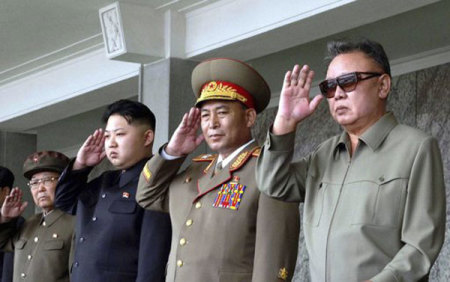North Korea Warns US, South Korea Over 'Provocative' Military Drills as Tensions Rise
North Korea has issued an aggressive message to the U.S. and South Korea, warning the two countries to stop their routine military drills scheduled for February and March, calling the training exercises a "dangerous" provocation. The warning from North Korea is reminiscent of the tension that took place last year regarding the drills.

"We sternly warn the US and the South Korean authorities to stop the dangerous military exercises which may push the situation on the peninsula and the north-south ties to a catastrophe," North Korea's KCNA state news reported last week on behalf of the Committee for the Peaceful Reunification of Korea.
The statement went on to say that the planned drills are "little short of the declaration of a total nuclear stand-off," adding that the training exercises could force the North and South into an "unimaginable holocaust and that disaster will follow should they go ahead with the nuclear war drills and make military provocation, defying our warning."
The U.S. and South Korea routinely operate military drills in the Asian country to both help South Korea's national security and the show the ongoing alliance between the two countries. The drills include thousands of U.S. and South Korean troops practicing such military exercises as Key Resolve and Foal Eagle.
South Korea said in a response statement that the drills are still going on as planned in spite of North Korea's threatening rhetoric, saying the communist country has not been recently involved in any unusual military activity that would indicate a possible attack.
"If North Korea actually commits military aggression at the excuse of what is a normal exercise we conduct as preparation for emergency our military will mercilessly and decisively punish them," South Korea's defense ministry spokesman Kim Min-seok said.
North Korea made similar threats to the U.S. and South Korea last year ahead of the countries' scheduled military drills. Ahead of the scheduled 2013 drills, North Korea set off a nuclear test in February, defying U.N. Security Council orders to cease atomic activity. As punishment, the U.S. and the U.N. imposed tougher sanctions on the country and its leader Kim Jong Un, who took over after his father died in 2011.
In response to the tougher sanctions, North Korea declared the armistice of 1953 with South Korea to be invalid, thus ending the truce the two countries have kept for more than half a century.





















